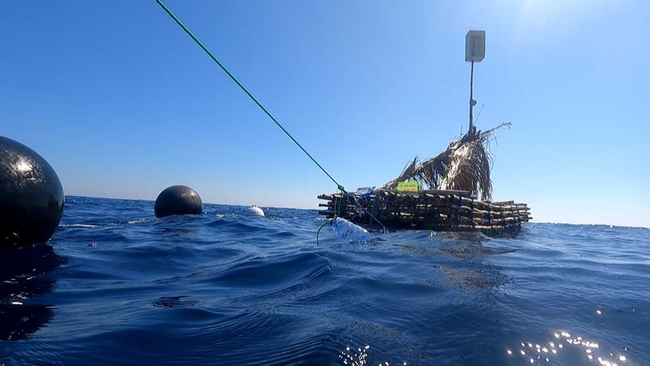Summary
Tropical pelagic biodiversity plays an essential role for the food security and incomes of many coastal developing countries, thus calling for its sustainable use. It is currently subject to major stressors from human activities and climate change. Due to its sparseness, remoteness and vastness, the open ocean is difficult to access and monitor. The main goal of MOOBYF is to fill this knowledge gap in pelagic biodiversity monitoring by using already existing Fish Aggregating Devices (FADs) as scientific platforms to observe and assess the open ocean ecosystem in collaboration with fishers. The project focuses on three main study areas located in the Indian Ocean: Indonesia, the Maldives and Mayotte. MOOBYF employs a combination of innovative monitoring techniques at FADs, including: molecular ecology (eDNA, metabarcoding), underwater acoustics (echosounders and bioacoustics) as well as underwater videos, artificial intelligence for species identification, and citizen-science approaches building on the local and ecological knowledge of the collaborating fishers. This heterogeneous data is combined and harmonised to build integrated biodiversity indicators, with a focus on three main taxonomic groups: teleost fish, elasmobranchs (sharks and rays), and cetaceans. The knowledge on pelagic biodiversity produced by the project’s interdisciplinary scientific team is the platform on which all knowledge-holders exchange, learn and create close connections to promote the long-term and multi-faceted use of such monitoring schemes. This approach is relevant for policy-making and society, since it aims at providing new knowledge for the sustainable use of pelagic biodiversity, and aligns with UN Sustainable Development Goal 14 (Life Below Water). MOOBYF’s collaborative effort aims to provide crucial data for the sustainable management of open ocean resources, which are vital for food security and the economies of many coastal developing countries.
Project partners |
|---|
|
IRD - MARBEC/SENS (Manuela Capello – F) Université de Liège (Eric Parmentier – BELG) CNR (Marco Andrello – IT) ZMT (Sebastian Ferse, Annette Breckwoldt – D) University of Padova (Leonardo Congiu – IT) BRIN (Wudianto Wudianto – IND) MRC (Ahmed Riyaz Jauharee – MLDV) |





